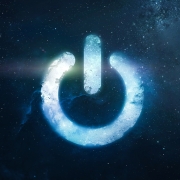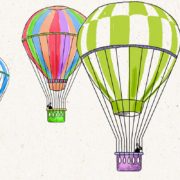The Game-Changing Nature of Gratitude
Many of us are looking at things with a different perspective now—and rightfully so. Previous lessons provide a fresh, more powerful impact when viewed through the lens of the Covid-19 era.
This really hit home with me recently when I flashed back to something I learned this past November—something that suddenly bears infinitely more significance today than it did just five short months ago. I’m sharing it in hopes that you, too, will find it has a helpful place in your world.
The learning referenced above came to me during our manager’s forum for Burke and Seed Strategy, called Spark Sessions—a regular meeting where we collaborate on developing effective teams and high-performing individuals. At this particular session, we focused on “sparking positivity to unleash motivation and top performance.” We had breakouts, big group discussions and watched a few publicly available videos on the subject.
At that time, I was captivated by a thought-provoking and entertaining Ted Talk given by Shawn Anchor, called The Happy Secret to Better Work. Toward the conclusion of the video, Anchor zeroes-in on things that all of us can do to make our brains happier and more effective. One of his recommended techniques involves writing down three things you are grateful for at the end of every day. Doing so is expected to raise positivity in the present. And, raising positivity in the present, he argues, is how you give your brain an advantage to perform at its best.
I wanted to put this idea to the test alongside my work colleagues. I was curious not only to see the impact it would have on me personally, but also to learn how it would work as a group exercise.
The idea both intimidated and excited me at the same time. And when I floated the concept among my colleagues, someone replied, “This makes me a little uncomfortable… as a result I think it’s a GREAT idea.” This was exactly the sort of validation I needed to push forward.
I timed the experiment to begin early in January, as a way to help our team get off to a fresh start. I leveraged Microsoft Teams and challenged each person to post three work-related gratitudes each day, for 21 consecutive business days. I wanted us to be accountable to each other and also felt we could all gain from reading the positive posts that others had written.
Several days into it, team members shared the changes they were seeing within themselves—they had trained their brains to look for the positive in each day and compartmentalize things that were less so. Our perspectives on our circumstances and interactions with others were being altered in real time. We discovered deep appreciation for the people we worked with (internal and external) and the kinds of work that we do every day. We shed new light on the gift of humor that’s found in and around business discussions. And, we unearthed gratitude in simple ways of thinking and being.
Coupled with our increased positivity, our team gained a deeper level of closeness, too. We became more tuned-in to what each person was working on and empathized with every posted gratitude—compounding our own gratefulness even more. By the simple virtue of being in this exercise together, we seemed to pull together more as a team.
So, keeping in tune with the experiment, my gratitude today is that our team had the courage to try this experiment earlier this year—when things were “normal.” I learned so much about my company, my team and myself. But I’d also venture to guess that we’d gain just as much, and probably even more, if we were to repeat the experiment in the environment of this global pandemic. So, let me encourage you, if you’re feeling cut off from teammates or perhaps just need a fresh boost of positivity amid your stay-at-home life, write down three gratitudes of your own. And, don’t forget to enroll others to join you. It’s remarkable how well it works. You’ll find that gratitude makes a positive difference that you’ll appreciate in any era.
Sean Smyth is EVP, Strategy at Seed Strategy where he guides clients through the ambiguities of innovation by grounding the experience in solid principles that build certainty and confidence—often by defying established conventions.
Edited by Adam Siegel. In addition to being the Editor of The Accelerator, Adam is VP, Creative at Seed Strategy where he draws upon his diverse experience in advertising, research and innovation to craft breakthrough creative and winning concept copy.
Connect with us! Follow Seed Strategy on our LinkedIn, Twitter, Facebook and Instagram pages.








